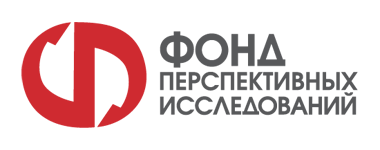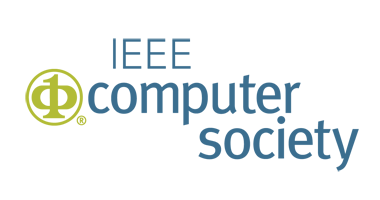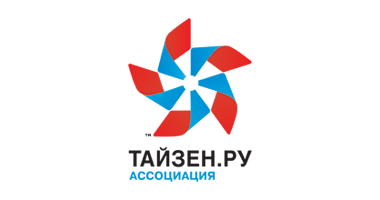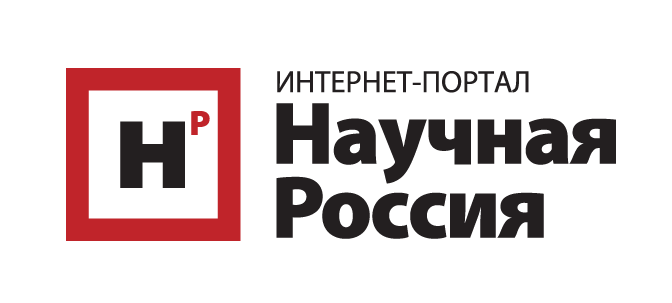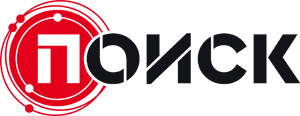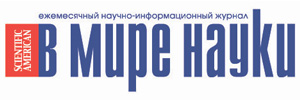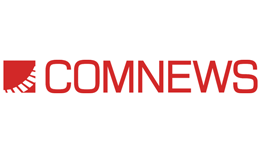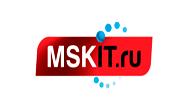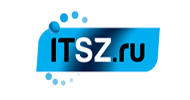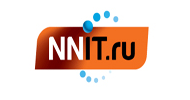Technologies of program analysis, modeling and transformation
The section is devoted to optimization methods in compiler and code generation, static and dynamic program analysis, etc. The topics include:
1. Binary (executable) code reverse engineering
- Algorithms recovery methods and technologies;
- Analysis of embedded software executable code, operational systems and BIOS code;
- Mobile platforms system software and applications analysis;
- Decompilation technologies;
- Practice in the application of reverse engineering tools.
2. Program execution in controlled environment
- Software emulators: prospective lines of development;
- Software-hardware virtualization tools, debugging, tracing;
- Executable code online analysis technologies.
3. Vulnerability search in executable code
- Static and dynamic methods of binary code bugs search;
- Focused fuzzing, binary code symbolic execution;
- Effective SMT-solvers;
- Security violations formalization on binary code level;
4. Network traffic analysis
- Content deep analysis, methods and technical tools;
- Reverse engineering of protocols;
- Infrastructure of software tools for network traffic analysis.
5. Compiler optimization and code generation
- Optimizations for static and dynamic languages;
- Optimizations for improvement of performance, code size and power consumption;
- Optimizations based on utilization of program profile as well as machine learning techniques;
- Programs internal representation and layers of abstraction used in the compiler.
6. Program static and dynamic analysis
- Code profiling and instrumentation techniques;
- Static optimizations and optimizations with the use of profile;
- Tools for power consumption and performance analysis, debugging and testing.
7. Program analysis and testing methods and tools
- Requirements elicitation, analysis and modeling;
- Computing system modeling paradigms;
- Systems design methods;
- Software system architectures;
- Dynamic verification and monitoring;
- Tests building automatization;
- Test thoroughness analysis;
- Performance modeling, measuring and testing;
- Computing systems protection and security analysis;
- Integration of different verification methods;
- Issues of inducting new technologies in engineering practice;
- Issues of teaching software development and analysis technologies.
We invite researchers to submit their non-published and non-submitted for other conferences articles on theoretical and practical studies on the above-mentioned topics.
To become a participant of the conference you need to register.
Programme Committee
Steering committee
- Arutyun Avetisyan, Prof., Academician of RAS, director of ISP RAS.
- Garbuk S.V., Ph.D. in Technical Sciences, scientific projects director (Higher School of Economics).
- Gergel V.P., Doctor of Technical Sciences, Professor at the Institute of Information Technology, Mathematics and Mechanics, NNSU.
- Kalyaev I.A., Doctor of Technical Sciences, Academician of RAS, scientific supervisor (Research Institute of multiprocessor computing systems, SFU).
- Lyutikov V.S., deputy director of FSTEC Russia.
- Fedosov E.A., Doctor of Technical Sciences, Academician of RAS, scientific supervisor of GosNIIAS.
- Assaf Schuster, Professor, head of AI center (Computer Science Department, Israel Institute of Technology (Technion)).
- Hironori Kasahara, Professor of Computer Science at Waseda University in Tokyo, 2018 IEEE Computer Society President.
- Dejan Milojicic, HP Labs, 2014 IEEE Computer Society President.
- Ivan Arzhantsev, Dr. Sci., Dean of the Faculty of Computer Science, HSE.
- Mikhail Pogosyan, Rector of Moscow Aviation Institute (MAI).
- Andrei Raigorodskii, Dr. Sci., Director of Phystech School of Applied Mathematics and Informatics, MIPT.
- Vladimir Rubanov, PhD, CTO Software Engineering, Huawei R&D Russia.
Organizing Committee
- Arutyun Avetisyan, Prof., Academician of RAS, director of ISP RAS.
- Samovarov Oleg, Ph.D., ISP RAS.
- Volkov Dmitry, editor-in-chief ("Open Systems"), senior research fellow (Keldysh Institute of Applied Mathematics).
- Prokhorov Sergei, Prof., MIPT.
Programme Committee
Program analysis, modeling and transformation technologies
- Arutyun Avetisyan, Prof., Academician of RAS, director of ISP RAS.
- Belevantsev Andrey, Dr. Sci., ISP RAS.
- Nikolaj Bjørner, Principal Researcher at Microsoft Research, Redmond, USA.
- Volkonsky V.Yu., Ph.D., JSC "MCST".
- Gaysaryan Sergey, Ph.D., ISP RAS.
- Devyztin P.N., Prof., ISEDU .
- Drozdov Alexander, Prof., MIPT.
- Kozachok Aleksander, Prof., The Federal Security Service of the Russian Federation, Head of the Laboratory for System Programming in Oryol.
- Makarov Vladimir , Ph.D., NovSU.
- Segey Yakushkin, Head of Compiler group, Huawei R&D Russia.
- Dmitry Melnik, ISP RAS.
- Vartan Padaryan, Ph.D., Head of Binary Reverse Engineering Team (ISP RAS).
- Petrenko Aleksander, Prof., ISP RAS.
- Kurmangaleev Shamil, Ph.D., ISP RAS.
Data Management and Information Systems
- Denis Turdakov, Ph.D., ISP RAS.
- Natalia Loukachevitch, Dr. Sci., Research Computing Center of Moscow State University.
- Dmitry Ustalov, Ph.D., Yandex.
- Kuznetsov Sergey, Dr. Sci., Professor, ISP RAS.
- Anton Korshunov, Ph.D., Quantum.uk.
- Nikita Astrakhantsev, Ph.D., Microsoft Corp.
- Dmitry Lizorkin, Ph.D., Google LLC.
- Boris Dobrov, Ph.D., Research Computing Center of Moscow State University.
- Elena Tutubalina, Ph.D., Kazan Federal University.
- Andrei Tchernykh, Dr. Sci., Prof., CICESE Research Centre (Ensenada, Baja California, Mexico).
- Oleg Samovarov, Ph.D., ISP RAS.
- Andrey Filchenkov, Ph.D., ITMO University.
- Ilya Sochenkov, Ph.D., Federal Research Center of Computer Science and Management (RAS).
- Assaf Schuster, Ph.D., ACM Fellow and IEEE Fellow, Professor of the Computer Science Department at the Technion, Israel Institute of Technology.
Open source software for continuum mechanics
- Kraposhin M.V., ISP RAS.
- Kornev N.V., Prof. Dr-Ing. habil., Universitat Rostock.
- Marchevskiy I.K., Ph.D., Bauman MSTU.
- Artem Nuriev, PhD, N.I. Lobachevsky Institute of Mathematics and Mechanics.
- Sigbatullin I.N., Ph.D., ISP RAS; IO RAS.
- Chashechkin Yu D., Prof., Ishlinsky Institute for Problems in Mechanics RAS.
- Scheglov G.A., Prof., Bauman MSTU.
- Strizhak S.V., Ph.D., ISP RAS.
- Yakobovsky M.V., RAS corresponding member, Prof., Keldysh Institute of Applied Mathematics.
- Yelizarova T.G., Dr.Sci., Prof., Keldysh Institute of Applied Mathematics.
- Terekhov K.M., Ph.D., INM RAS.
- Epikhin Andrey, Ph.D., ISP RAS.
- Dr. Henrik Rusche, WIKKI Gesellschaft fur numerische Kontinuumsmechanik mbH.
- Prof J.M. Redondo, Universitat Politècnica de Catalunya, PELNoT, LAB-ERCOFTAC.
- Tellez Alvarez, Jackson, PhD., Flumen Institute, Universitat Politècnica de Catalunya – Consorci Besòs Tordera.
Organizer & Partners
Registration
Paticipation in the conference and publication of articles are free of charge. Travel and accommodation, as well as other expenses are to be paid by the participant.
Contact us via e-mail scsec@ispras.ru to get instructions.
Submission
The papers should be 3-7 pages long, formatted using Templates for Conference Proceedings. Peer review is double-blind. Please remove any references to authors (such as names, affiliations or emails) from submitted manuscriptsarticles, as well as direct references to previous works. In the case of successful review and acceptance you will be requested to submit camera-ready text with necessary author details.
Submission is open at EasyChair.
Submissions that violate these guidelines will be rejected.
Contacts and other information
E-mail and phone
You may contact us by e-mail
Venue address
Moscow, Leninskiy prospect, 32A, the Main building of the RAS (not far from Moscow Metro station "Leninskiy prospect" and Moscow Central Circle station "Ploshchad Gagarina"). The venue may be changed due to the epidemiological situation; the Conference may take place online.
Details
The Conference is held from 9:00 to 18:00 (with coffee breaks and lunch for guests and participants).


